If you're wondering how many trailer solar panels you actually need, the answer depends on what you plan to power. For basic appliances, such as lights, phone charging, and maybe a fan, you can consider around 200 to 400 watts of solar panels with a small battery backup. But if you're running a fridge, microwave, or other appliances, you'll need a solar power supply system with a capacity of 1000 to 2000 watts.
Jackery Solar Generators are powerful and portable solar-powered generators that can power essential appliances, such as refrigerators, cooking equipment, fans, and more. The power stations have a foldable handle, and solar panels can be easily carried to the travel trailer. In this comprehensive guide, you'll learn how many trailer solar panels you need for the motorhome and the best solar-powered generators for RVs.
Key Takeaways
- Most travel trailers and RVs need between 200 and 2000 watts of solar power, depending on appliance usage and daily energy needs.
- Smaller trailers with minimal devices can run efficiently on 500-1000W setups, while larger RVs with kitchen appliances, AC, or workstations need around 2000W.
- You should always calculate your average daily energy consumption before investing in a battery backup and solar panel system.
- Pairing trailer solar panels with a battery backup like the Jackery Solar Generator offers reliable storage and backup even when the sun is not shining.
Understanding RV and Trailer Power Needs
Calculating the power needs of an RV or trailer begins by identifying the appliances that will be used, their power consumption, and their operating times. This helps you determine the total power consumption and choose the appropriate solar power supply system accordingly. For example, a minimalist weekend camper will have far different needs than someone living in a travel trailer full-time.
Power Usage Breakdown by Trailer Type
You need to remember that the camper or trailer power consumption will significantly depend on the type of trailer and the appliance usage. Here are the popular off-grid travel trailer types, along with the power consumption:
Tent Trailer
A tent trailer or a pop-up camper features a tent-like structure that can be folded down for travel. Many tent trailers come equipped with beds, a small kitchen, and even a bathroom, providing a comfortable trip experience. They have low power consumption and are used for lighting and small appliances, such as coolers or fans.
|
Common Appliances |
Wattage Consumption |
Running Time Per Day |
Daily Power Usage (Wh/day) |
|
LED Lights |
10W |
4H |
40Wh |
|
Small Water Pump |
40W |
0.5H |
20Wh |
|
Portable Cooler |
60W |
6H |
360Wh |
|
Total (Tent Trailer) |
420Wh |
||
Travel Trailer
A travel trailer or a campervan is towed behind the vehicle to provide temporary housing while traveling. They are available in different sizes and configurations, ranging from compact models for smaller families to larger ones with more amenities like full bathrooms and kitchen facilities. A 2000-watt generator is generally sufficient to power appliances in a travel trailer.
|
Common Appliances |
Wattage Consumption |
Running Time Per Day |
Daily Power Usage (Wh/day) |
|
Multiple LED Lights |
100W |
4H |
400Wh |
|
Mini-Fridge |
100W |
8H |
800Wh |
|
Water Pump |
50W |
1H |
50Wh |
|
Microwave |
500W |
1H |
500Wh |
|
Total (Travel Trailer) |
1750Wh |
||
Camp Trailer
Camp trailers are often smaller and lighter than travel trailers. They are built for rough terrain and off-road travel and designed for self-sufficiency with features such as water and power storage. The camp trailer's power consumption will depend on the appliances you plan to use during the trip.
|
Common Appliances |
Wattage Consumption |
Running Time Per Day |
Daily Power Usage (Wh/day) |
|
Fridge |
300W |
8H |
2400Wh |
|
Coffee Maker |
800W |
0.5H |
400Wh |
|
RV AC |
800W |
2H |
1600Wh |
|
Microwave |
500W |
0.5H |
250Wh |
|
Total (Camp Trailer) |
4,650Wh |
||
Full-Time RV
Full-time RV living involves residing in an RV or motorhome instead of a traditional main residence. Full-time RVs typically have essential appliances, such as refrigerators and cooking equipment. They are generally larger in size and need more power compared to tents or camp trailers.
|
Common Appliances |
Wattage Consumption |
Running Time Per Day |
Daily Power Usage (Wh/day) |
|
LED Lights |
10W |
4H |
40Wh |
|
TV |
150W |
2H |
300Wh |
|
Fan |
40W |
5H |
200Wh |
|
Coffee Maker |
800W |
0.5H |
400Wh |
|
RV AC |
800W |
4H |
3200Wh |
|
Microwave |
500W |
1H |
500Wh |
|
Total (Full-Time Trailer) |
4640Wh |
||
How Solar Panels Work on Trailers and RVs
Solar panels are installed on the rooftop of the RVs or trailers. They absorb the solar energy that falls on the panels and convert sunlight into direct electricity. The DC is transferred to AC electricity, which is stored in the RV batteries to power appliances even when there is no sunlight.
How Much Energy a Typical Solar Panel Produces Per Day
The total electricity produced by the travel trailer solar panel varies depending on certain factors, including available sunlight, panel efficiency, and panel wattage. In order to calculate the energy production by the RV solar panel per day, all you need to do is multiply the panel wattage by the number of daily peak sun hours.
Let's take an example to understand better:
Suppose you have a 200-watt trailer solar panel and expect approximately four peak sun hours per day. This means the solar panel will produce 800Wh of electricity per day.
Solar Energy Production = 200W × 4H = 800Wh per day
Generally, the southern US receives more peak sunlight hours compared to northern and coastal areas.
How to Calculate Solar Panels for a Trailer
If you want to calculate the number of solar panels required for the trailer, you need to estimate the daily energy consumption and the usable sunlight in the location. Here's the step-by-step guide to calculating the solar panels for travel trailers and RVs:
Step 1: Estimate Your Daily Energy Needs
Note down the electricity consumed by the appliances and other devices in the trailer and RV. You can look at the wattage of each appliance and multiply it by the average usage time. For example, if the wattage of an RV AC is 500W and it runs for 4 hours a day, the power consumption will be 2 kWh per day. Sum up the energy usage of the RV appliances you plan to use simultaneously.
Step 2: Choose the Usable Sunlight & Number of Panels
Determine the number of hours of usable sunlight you get. Select the travel trailer solar panels with a wattage that aligns with the estimated daily energy needs. For example, if the daily power consumption needs are 2 kWh per day and you choose a 200-watt solar panel, you'll need around 10 panels (2000 watts / 200-watt panel).
You'll also need to consider investing in a solar battery backup that stores the electricity generated by the PV panels during the day, allowing you to power appliances during the night or on cloudy days.
How to Choose a Solar Panel for Your Trailer
When choosing a solar panel for the trailer, you must weigh various factors, such as trailer size, average peak sunlight hours in your location, and your electricity consumption needs. Here's what you need to look for to choose the best travel trailer solar panels:
Panel Type: There are three main types of solar panels: monocrystalline, polycrystalline, and thin-film. Monocrystalline panels are the most efficient compared to other types. Thin film panels are affordable and flexible but produce the least electricity.
Panel Wattage: The higher the solar panel wattage, the more electricity will be generated. If you plan to use most of the essential RV appliances on your trip, you will need to look for high-power camping trailer solar panels.
Evaluate the Space: If you're purchasing solar panels for an RV roof that needs to be mounted on the roof of your travel or RV, you'll need to consider the available space. Check the available space on the rooftop that receives direct sunlight to decide how many panels can be mounted on the RV roof.
Understanding Efficiency Ratings: Solar panel efficiency refers to the capacity of photovoltaic panels to convert sunlight into electricity. Jackery SolarSaga Solar Panels have an efficiency of around 23 - 25%, which means that maximum sunlight hitting the panels can be converted into electricity.
Best Jackery Solar Generators for Trailers
The power consumption of travel trailers and RVs can vary depending on the size and appliances used. A small camp trailer may need as little as 500W, whereas a full-time RV requires several kilowatts daily. Jackery is a leading brand manufacturer that manufactures solar generators, solar panels, and power stations. The Jackery Solar Generators can store the electricity generated by the trailer solar panels and power essential travel trailer appliances, such as fans, lights, refrigerators, etc. Here are two of the best Jackery Solar Generators for travel trailers:
Jackery Solar Generator 1000 Plus Roam Kit
The Jackery Solar Generator 1000 Plus Roam Kit is suitable for trailer owners looking to power basic appliances and devices on weekend trips. This RV generator can easily run various appliances, such as mini-fridges, LED lights, and portable fans. The Jackery SolarSaga 100 Prime Solar Panels can be installed on the RV or trailer rooftop to recharge the portable power station during the day and power appliances whenever needed.
Appliances Running Time
- Fridge (300W) = 3.3H
- Microwave (500W) = 2.0H
- RV AC (800W) = 1.3H
- Electric Grill (1000W) = 1.0H
- TV (150W) = 6.2H

Customer Review
"I charged up the jackery in a little more than an hour to 100%. I plugged in my new 12-volt fridge to see how much energy it would take. After 12 hours, the Jackery was still at 95%. I am very pleased and believe this will make travel and camping so much easier and more enjoyable." — Lea Curtis.
Jackery Solar Generator 2000 Plus
The Jackery Solar Generator 2000 Plus is suitable for larger trailers or long travel trips. It can handle essential appliances, such as microwaves, induction cooktops, and air conditioners. It has a foldable handle, pull rod, and double wheels for easier transportation in and out of the vehicle. If you want to power heavy-duty appliances for extended periods, you can extend the capacity from 2 kWh to 24 kWh with the add-on battery packs.
Appliances Running Time
- Fridge (300W) = 5.3H
- Microwave (500W) = 3.2H
- RV AC (800W) = 2.0H
- Electric Grill (1000W) = 1.6H
- TV (150W) = 10.0H

Customer Review
"Easy to set up and use, thoughtful design to have a battery mounted on wheels. Since this is a modular system, we will be adding more components in the future." — Denise Shepherd.
FAQs
How many solar panels do I need to power a trailer?
To power a trailer with solar panels, the number you need depends on your energy needs and the panels' output. Generally, most trailers require between 2 and 5 solar panels, each rated at 200 watts, and a battery backup to meet their daily energy needs.
Can you put solar panels on a trailer?
Yes, some roof-mounted tent trailer solar panels can be installed on the rooftop of the trailer or RV. The trailer solar panels with a battery backup can be used to power essential outdoor appliances, such as refrigerators, lights, and cooking stoves.
Is a 100W solar panel enough for a travel trailer?
No, a single 100-watt solar panel is generally insufficient for powering a travel trailer, especially appliances like refrigerators. Most travel trailers require a 1000-watt or 2000-watt generator to power essential appliances.
Will a 200-watt solar panel run a camper?
A 200-watt solar panel can run basic camper appliances, such as lights and small appliances, but it might not be sufficient to run most camper appliances. If you want to power essential camper appliances, you will need multiple solar panels with a solar battery backup.
What kind of solar panels are best for an RV?
Monocrystalline and polycrystalline silicon solar panels are highly efficient panels suited for RV projects. But if you have an RV with a curved roof, you'll need flexible thin film RV trailer solar panels.
Conclusion
The exact number of trailer solar panels you need depends on the daily power consumption of your setup and the duration of your off-grid stay. As a general rule, most trailers require at least 500 to 2000 watts to comfortably support appliances such as refrigerators, fans, lights, and small electronics. Jackery Solar Generators combine solar panels and portable power stations that can power essential trailer appliances, such as fans, lights, and electric stoves.

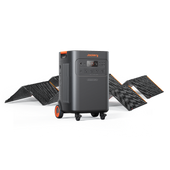











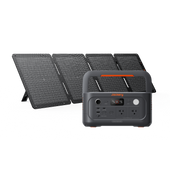





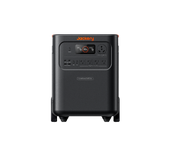
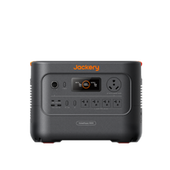





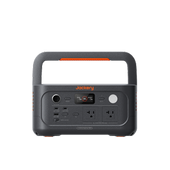





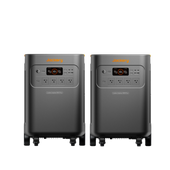
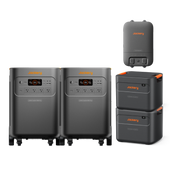





![[Add - on] Jackery Manual Transfer Switch for Explorer 5000 Plus - Jackery](http://www.jackery.com/cdn/shop/files/add-on-jackery-manual-transfer-switch-for-explorer-5000-plus-9017324.png?v=1754016782&width=170)

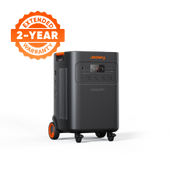
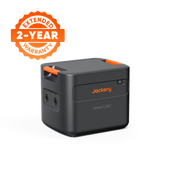
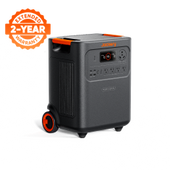
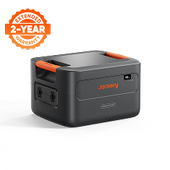
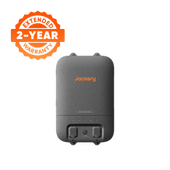



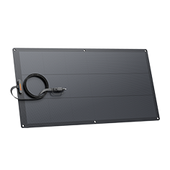
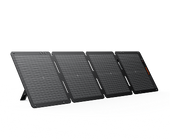




















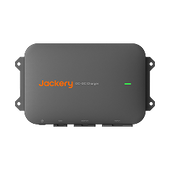




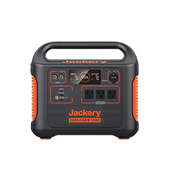







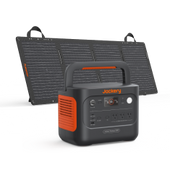
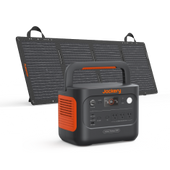




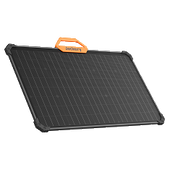


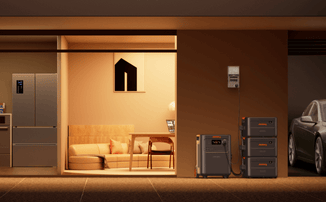













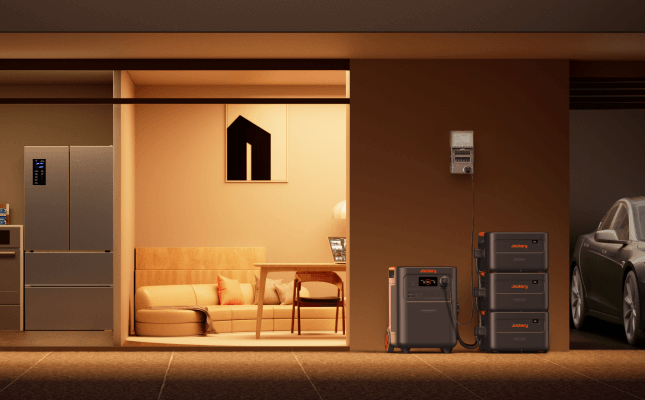

























Leave a comment